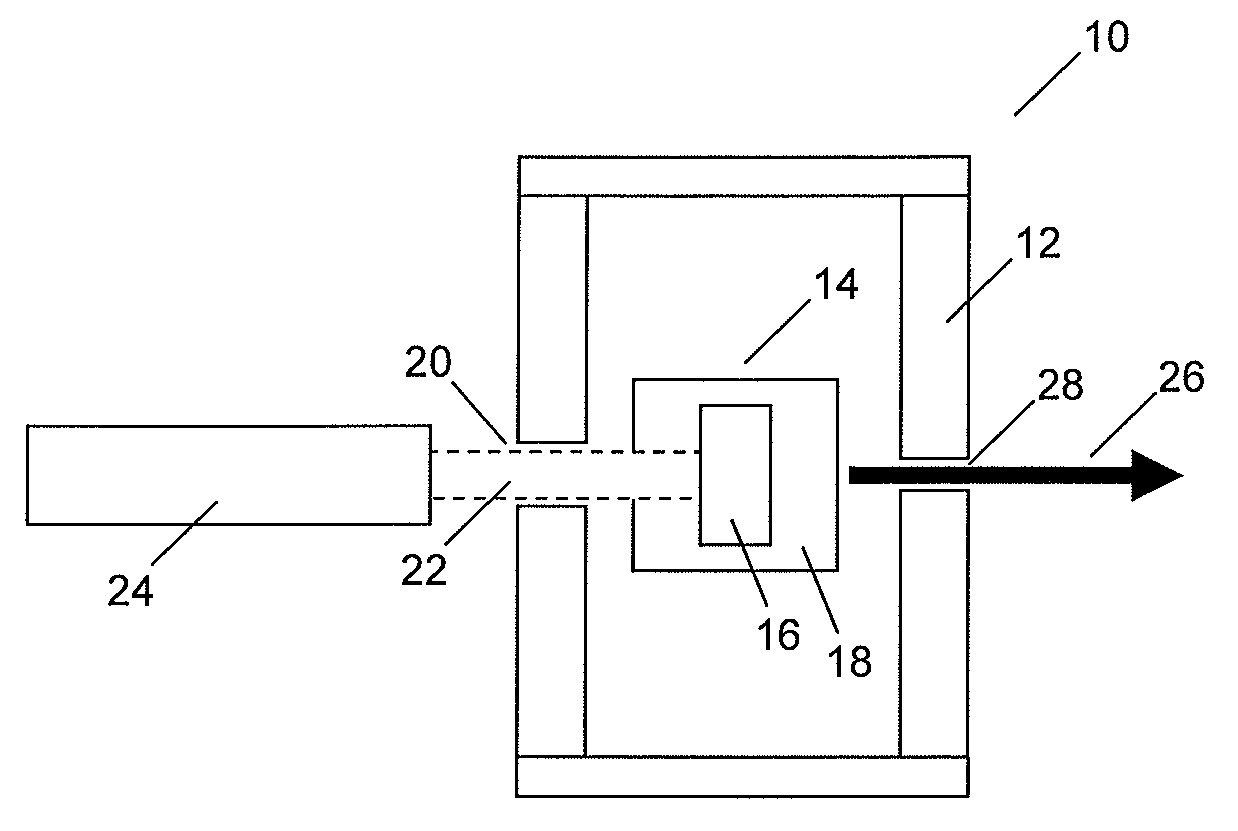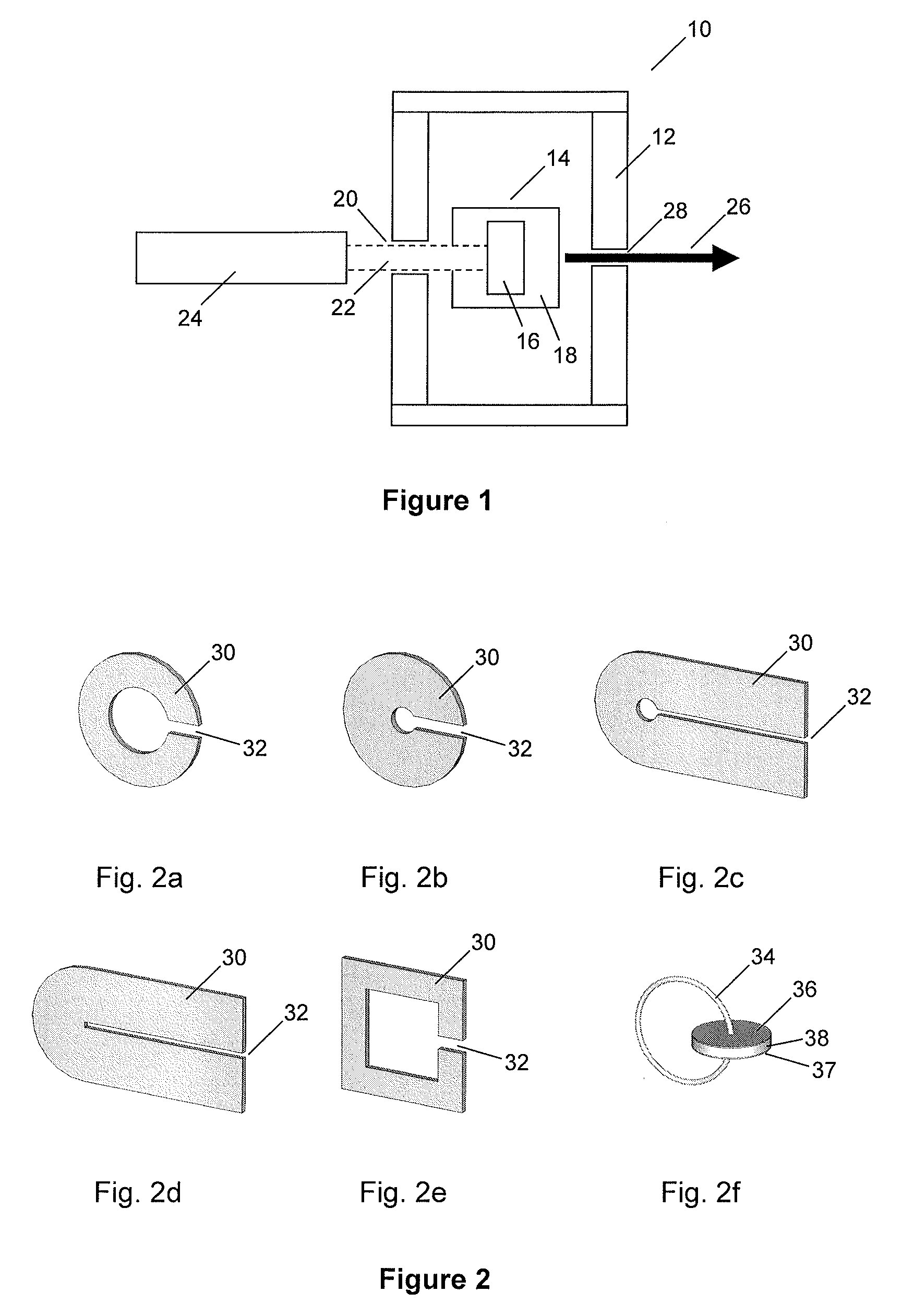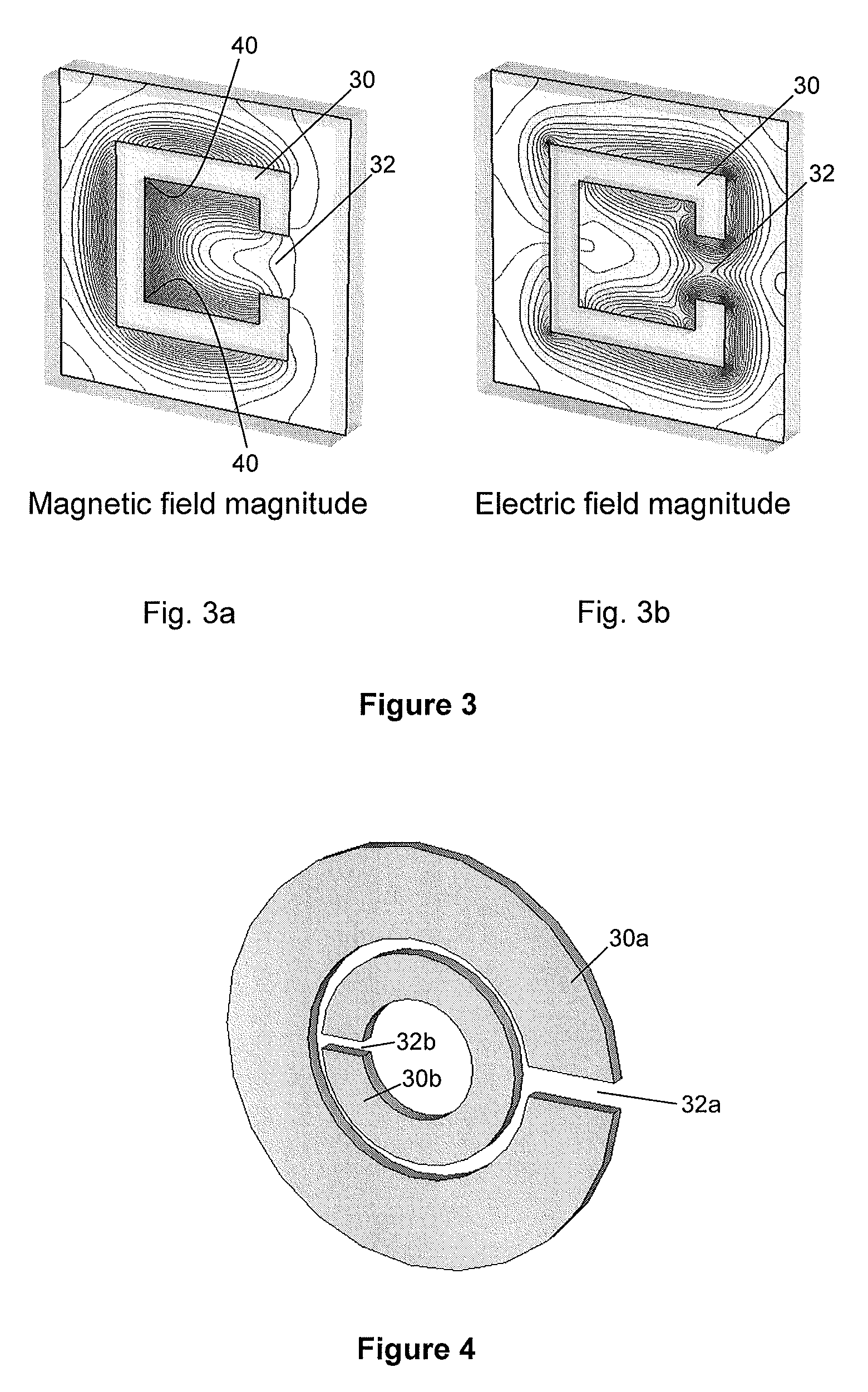Device and method for generating stimulated emission of microwave or radio frequency radiation
a technology of stimulated emission and microwave or radio frequency radiation, applied in the direction of measurement devices, waveguide type devices, instruments, etc., can solve the problems of masers being restrictively narrow-band devices, used as preamplifiers of weak signals and not as power amplifiers, and bulky and power hungry devices, etc., to achieve low dielectric loss, cause amplification of electromagnetic radiation, and high relative permittivity
- Summary
- Abstract
- Description
- Claims
- Application Information
AI Technical Summary
Benefits of technology
Problems solved by technology
Method used
Image
Examples
example 1
[0073]A cylindrical single-crystal of Al2O3 with external diameter 73 mm, internal diameter 10 mm and height 35 mm was placed upon a quartz spacer within a copper cavity with diameter 150 mm and height 74 mm. The resonant frequency of the TE01δ mode was measured at 1.45 GHz with an unloaded Q-factor of 169,600. The magnetic mode volume was calculated to be 58.6 cm3, yielding a magnetic Purcell factor of 3×103 cm−3.
example 2
[0074]A cylindrical single-crystal of TiO2 with external diameter 22 mm, internal diameter 3 mm and height 13 mm was placed upon a quartz spacer within a copper cavity with diameter 94 mm and height 60 mm. The resonant frequency of the TE01δ mode was measured at 1.48 GHz with an unloaded Q-factor of 37,000. The magnetic mode volume was calculated to be 1.3 cm3, yielding a magnetic Purcell factor of 29×103 cm−3.
example 3
[0075]A cylindrical single-crystal of SrTiO3 with external diameter 10 mm, internal diameter 3 mm and height 12 mm was placed upon a quartz spacer within a copper cavity with diameter 52 mm and height 30 mm. The resonant frequency of the TE01δ mode was measured at 1.53 GHz with an unloaded Q-factor of 10,060. The magnetic mode volume was calculated to be 0.2 cm3, yielding a magnetic Purcell factor of 53×103 cm−3.
PUM
 Login to View More
Login to View More Abstract
Description
Claims
Application Information
 Login to View More
Login to View More - R&D
- Intellectual Property
- Life Sciences
- Materials
- Tech Scout
- Unparalleled Data Quality
- Higher Quality Content
- 60% Fewer Hallucinations
Browse by: Latest US Patents, China's latest patents, Technical Efficacy Thesaurus, Application Domain, Technology Topic, Popular Technical Reports.
© 2025 PatSnap. All rights reserved.Legal|Privacy policy|Modern Slavery Act Transparency Statement|Sitemap|About US| Contact US: help@patsnap.com



